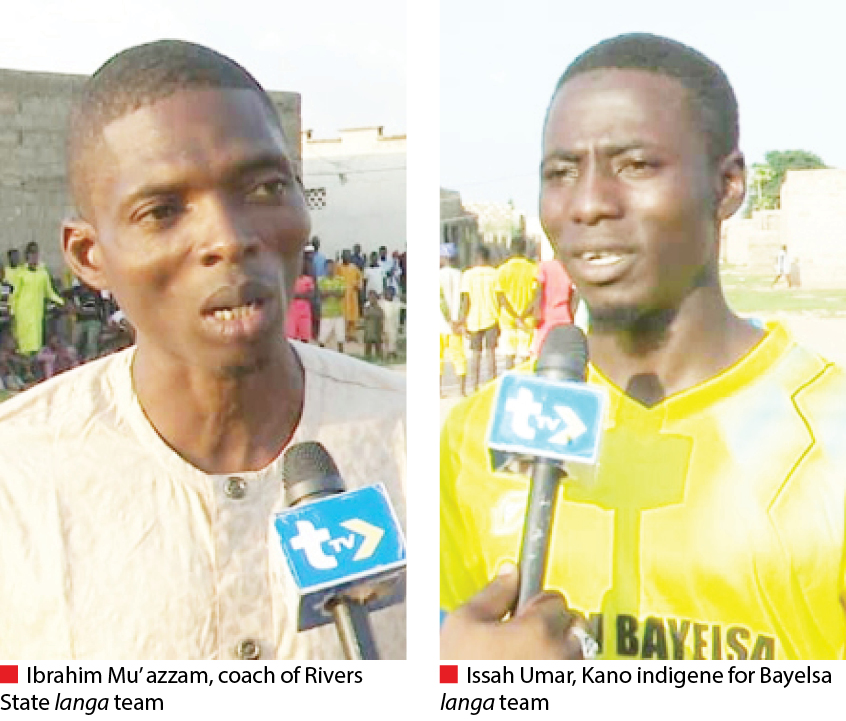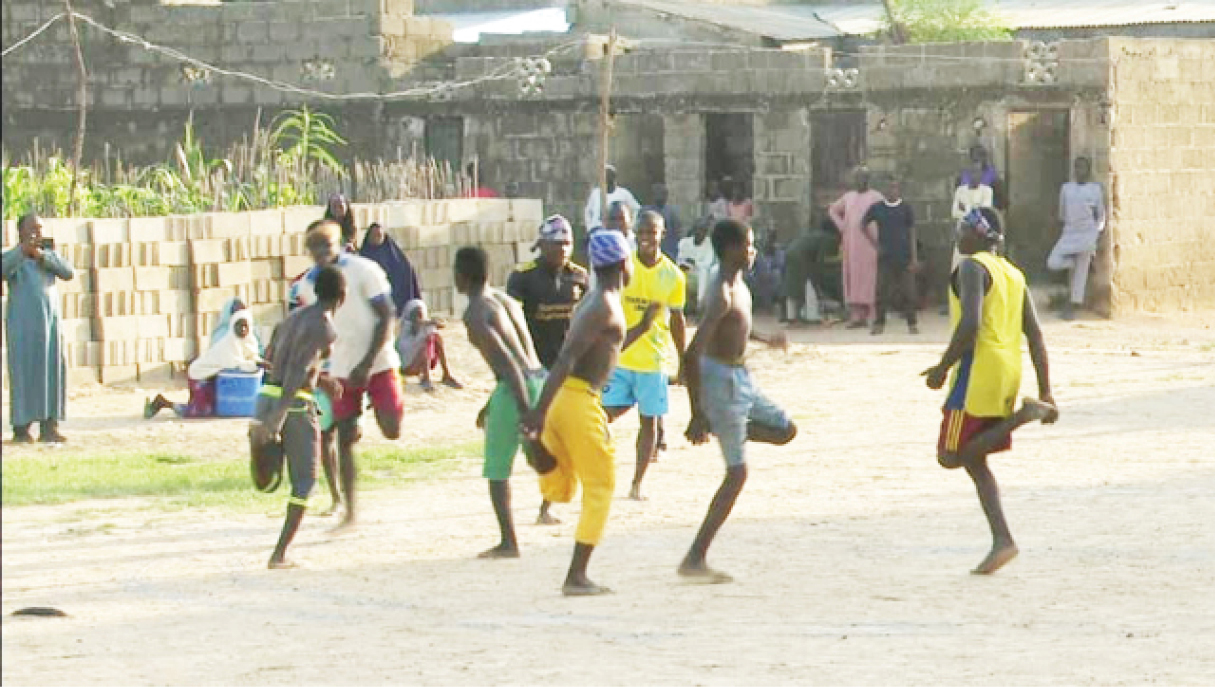Nigeria is a country blessed with several traditional games. Though such sporting activities have faded away due to lack of support and the dominance of Western sports, there are some that have persevered and are growing in leaps and bounds.
Such traditional sports are embedded in the cultural beliefs and practices of the people. They also played a significant role in teaching children about the structure of their societies.
Although there are so many traditional sports in Nigeria, the most prominent ones that are recognised by the Traditional Sports Federation of Nigeria are abula, langa, ayo, dambe and kokawa. But to the disappointment of most Nigerians, these trado sports have continued to get a cold shoulder from organisers of the National Sports Festival (NSF).
These trado sports are spread among the major tribes in Nigeria. The game of abula and ayo for instance are common among the yorubas of the South West while origins of combat sports like dambe, langa and kokawa are usually traced to the northern part of the country.
FG flags off resettlement homes for Benue IDPs
How can NNPC and Niger State Plant 1 billion trees? Here are 3 proven models
Most trado sports which originated from northern Nigeria are known for promoting physical prowess and endurance. They often form part of activities at traditional marriages.
Kano State is said to be the traditional home of the game of langa. It is a sport with cultural significance which has been passed down through the generations and practised by people of all ages.
Langa is a game that is played in rounds. In each of the rounds, one player from each team, known as the ‘ruwa’ (point-scorer), attempts to reach a designated point on the opponent’s side in order to score a point for their team. While the game is on, the ‘ruwas’ and all other players have to hop on one foot, while holding their other foot with one hand. This is why it is also called the hopping sport.

However, there is an emerging trend as youths from the North who have complained of lack of support to develop the sport are moving down South to propagate the game of langa. Interestingly, a state like Rivers has warmly embraced the game. Consequently, most of the youths from the North are said to be trooping there because that is where they are guaranteed the much needed support.
34-year-old Ibrahim Mu’azzam, from Kayi village of Panshekara, Kumbotso Local Government Area of Kano State is one of such youths who have found succour in Rivers State as a langa coach. He is currently helping to develop the sport there.
In a chat with Trust Sports, the langa coach decried the lack of attention for the sport by northern state governments. He, however, said everything he has achieved in life was made possible by the opportunities provided for him outside his region.
“I have been involved in this sport since I was very young. I represented the Federal College of Education (FCE) Kano at NICEGA Games. I am now the coach of Rivers State langa team.
“I coached the team that won silver and bronze medals at the National Sports Festival (NSF). Rivers State has given me a contract appointment. Even states like Lagos, Cross River and Bayelsa once contacted me to recommend players for them. I have achieved a lot in the game of Langa but it is not from my state of origin.”
Isah Umar is another Kano indigene who is representing Bayelsa State in the game of langa. He said “I am one of the players of the Bayelsa langa team. I have competed against teams from various states at the NSF. However, here in Kano where the game of langa originated, we have no competitions. Most times, what we do is to celebrate events.”
On his part, Usman Shitu, a resident of Kayi who is in his late 50s, described langa as a sport they practised right from time. He also said it can be a source of income, if supported.
“When we were young, once a person could play langa very well, people would identify him as a strong man because it is a sporting activity that builds the body. Such outstanding langa athletes were paid to work on farmlands.
“This sport is enjoyed by all. The old and young, men and women like to watch it. Even older men still engage in langa, especially when they are working on their farms.
“Our desire is that Langa should be promoted to become like the well-known and organized traditional sports and modern sports like football which is followed all over the world,” he said.
Kano without a Langa team
While the game of langa has continued to captivate followers elsewhere in the South, the sport is under threat in Kano State where modern sporting activities are said to be enjoying more patronage.
According to langa enthusiasts, for the past 10 years, Kano state has not entered the traditional sport for the NSF. They are worried that even as the langa is adopted by other states, it is being neglected at home.
“We have so many cultural practices that are preserved and uplifted. Langa should be one of them. The game of langa can be organised and known globally like football.
“Sadly, in Kano where we come from, there has been no langa team for the past 10 years and when we ask why; there is no tangible reason that is given to us.
“In Rivers State, everywhere we go to play langa, there are always many spectators because the people are not very familiar with the sport. My players are also eager to learn and their government has been very supportive,” said Coach Mu’azzam.
The worried langa coach added that “Rivers State has embraced me fully. I am being paid a monthly allowance. I have mixed-feelings because I am abhorred at home but valued by a state so far away from my place of origin. When we try to find out why Langa is not taken to the NSF, there is no tangible reason. I think they are not interested.”
When contacted, a former Director of sports at the Kano State Sports Commission (KSSC), Dr Bashir Maizare, opined that the absence of langa over the past decade is not deliberate but due to certain circumstances.
“The issue now is that there was a time when we went to the NSF in Abuja in 2004 and 2006 and in Abeokuta, Ogun State. We had a problem with the langa players who misbehaved. So, that is why since then, it has not been possible to field a langa team. But we have Kokawa and Dambe teams.”
However, the Secretary of Traditional Sports in Kano, Aminu Umar, blamed the fate of langa on lack of coaches and sponsors.
“It is true, for a long time, kano hasn’t had a langa team representing it anywhere. The reason is that we don’t have a coach who will train the athletes. We have one person at the national level but he is a referee not a coach.
“If you can recall, it was even part of our extra-curricular activities in primary and secondary schools but now they have all stopped because there are no coaches to promote it.
“We accept that it is supposed to be practised more like dambe which is now very well-known all over the world.
“Honestly, despite its popularity in the past, langa in Kano is no longer getting the attention it is supposed to receive from sports authorities. When I was a child, I learnt about langa from my parents,” said Umar.

 Join Daily Trust WhatsApp Community For Quick Access To News and Happenings Around You.
Join Daily Trust WhatsApp Community For Quick Access To News and Happenings Around You.


